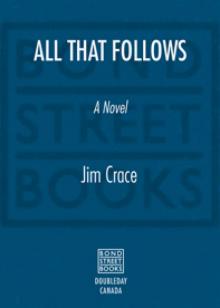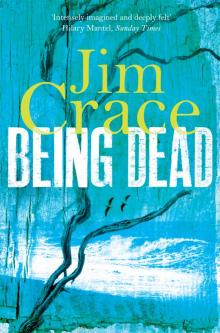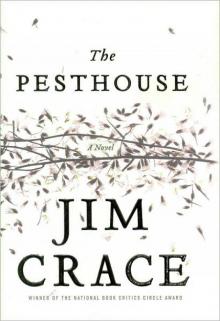All That Follows Read online
Page 3
One of the curbside experts has the information, though: “It’s the daughter. That’s her, see?” How can he be sure? “I overheard.” He says it boastfully, as if overhearing is a talent. “She’s just a kid.” He points toward a group of officers and there, not blending in, a spot of uncamouflaged color among the khakis, blues, and blacks, is an adolescent girl in a red beret, her face made indistinct by the weather and distance, her back turned to the hostage house, either speaking closely to her cell phone or crying.
She’s not a kid, thinks Leonard. She’s not a kid if she is who he thinks she is. He works it out. Austin in October 2006, and then some months. She would have been born in the summer of 2007, the summer of no sun. So that would make her not a kid and not a woman yet but seventeen. “Brave kid,” he says out loud. Yes, brave. Yes, valiant. While he hesitated by the phone last night—he will phone; he will never phone; he sleeps—Maxie’s daughter determined to put on her hat and go out in the rain to do what Leonard should have done at once. Name names. Again there is a reason to be disgruntled with himself, not quite ashamed but downcast, rather. He’s fumbled his opportunity. But still, as he knows well, an error can be retrieved and embellished in its retelling, and he is tempted to share his own information at once with this crowd of onlookers. I know him. I knew her, the girl, before she was even born. I can guess who the woman is. I thought I loved her once. But again he hesitates and the moment is lost.
He considers that possibly, no, probably, later in the evening, when he confesses to Francine what he has really done that day, not walking in the forest, he’ll add the detail—almost true—that he (an “estranged British friend”) has offered information to the police. Surely she will applaud him for it, and to be deserving of her approval, if only briefly, is what he most desires, her approval and her happiness. He envisages an evening like they used to have, before Celandine went missing, went silent, became estranged, whatever she has done, and his wife’s depression set in, an evening when he prepares the meal and they sit side by side with it on trays, their thighs and elbows bumping, watching television, and just for once not fretting for the phone to ring with news, good news or any news, of Francine’s daughter. Drive home, he thinks. Enough of this. There’s nothing to be done for Maxim Lermontov. That’s history. He’s history. But Francine needs you home.
It is the beret that he notices as he drives past on the first kilometer of his return to Francine. The “kid” isn’t wearing it but holds it in her hand. The wind is strengthening, but the rain has almost cleared. There are even a few blue shreds hoisting up from the west and enough sharp light for fitful shadows to spread across the road. Her hair, he sees, though bunched, is thick and sinewy like her father’s, but she has her mother’s squarish build and sun-shy English coloring. She is walking to the tram station, he thinks. On impulse he whirs down his side window and accelerates to draw alongside her on the pavement. But a teenager like her will know not to talk to cruising men in old-style vans with QUEUE HERE on their caps, and so he drops back and parks, despite the single yellow lines and PERMIT HOLDERS ONLY signs, and hurries after her on foot. He cannot call her name. He does not know her name and never has. He only knew her parents briefly. But there is one good reason to feel intimate. He was present in that Texan loft when they discussed aborting her. He thought but did not say—it was not his business, after all—that in his view, in his analysis, based on his older sister’s suicide aged twenty-two, terminations rarely terminate for the mother. His sister’s cut-short child, a boy, haunted her, a kind of toddler ghost, until she gave up the ghost herself. In a kinder universe, Leonard would be an uncle now. Instead, he has no sister and no nephew, no children of his own, and just one stepdaughter, Celandine, one missing stepdaughter. He is an orphan without heirs, he often thinks. And thinks it right now—how could he not?—as he pursues this teenage girl. His walking shadow clips her heels.
“I knew your father,” he says, too softly, to her back. He says it again, and takes his beach cap off, more embarrassment than formality, before she has a chance to turn round.
Although it’s damp and cold, they sit outside in the Woodsman’s yard, on a short timber bench, their shoulders touching or their elbows clashing when they lift their drinks: his prudent “regular” measure of wine and the defiantly large, liter glass of beer that Leonard has reluctantly bought her without challenge from the barman, even though she looks, and is, underage. Despite the tobacco ordinances, she smokes, an edgy and unbroken chain of roll-ups from a tin, as she justifies that morning’s “snitching” on her father: “What am I supposed to do? Sit back and watch it happen on the television? There’re hostages. He’s taken hostages …”
“There’re guns!” adds Leonard, and he is unexpectedly roused by the effortless drama of the phrase. He’s keen for her to know he’s on her side, that (as he says, striving for effect) she has been “a mensch rather than a snitch.” Emboldened by alcohol and being far from home, he is airing for both their benefits a more truly daring version of himself. What is there to stop him? As far as this young stranger is concerned, he is an unmarked canvas that he can color in any way he wants. “Guns,” he says again, and then adds a line that, even as he says it, seems lifted from the tritest gangster movie: “He’s armed. He’s desperate. He could do anything … so we should do something. Yes?”
“Well, yeah. That’s what I said to Mum …” (Here she imitates her mother’s evidently apprehensive voice.) “She said, ‘Be sensible. Don’t get involved.’ Well, let’s be honest, that’s never on the toolbar, is it? That isn’t me. I always get involved. Feet first. She always got involved when she was my age. So she says.”
“She was an activist.”
“My mum, the activist? Not nowadays she’s not. She’s … what’s the opposite?”
“A dormouse,” Leonard suggests.
The teenager laughs. “Just a pinch more lively and opinionated than a dormouse.”
“A rightist, then?”
“No, not that. She hasn’t changed her mind. She’s more, you know … a smolderer. All smoke and no fire? She’s shouting at the TV news all day but doesn’t even vote.”
“A sofa socialist.” It’s Francine’s nickname for her husband nowadays.
“A sofa socialist. That’s it. Pass the velvet cushions, please.” She mimes a yawn onto the back of her hand.
“She was a firebrand, actually,” Leonard says. “She really was. We both were. Once upon a time. Red Nadia.” In fact, for a moment, earlier, he expected to discover that her mother was Maxie’s female comrade in the hostage house.
“Is that you now, a sofa socialist? Or are you still the activist?”
“I’m still ready,” Leonard says. Not quite a lie. Ever since his teenage years he has been ready for the fray—politically, at least. Where other boys had sports or girls or evening jobs, little Lennie immersed himself in his music, or in protest groups, his meetings and his high hopes for the world. “One has to throw one’s pebble at the wall,” he adds, a modest phrase he’s always liked.
“So let’s get ready with the pebbles, then.” She high-fives him, and Leonard responds a little clumsily, sending wincing pain into his shoulder. Then they sit awkwardly and silently for just a shade too long. Too long for Leonard, anyway. He has to speak. “I hope I haven’t lost the fire.” He is rewarded by an entirely unguarded smile that can mean anything: that she finds him laughable, admirable, embarrassing, dishonest. But he is charmed by it, and by her openness. Again they sit in silence, staring at the back wall of the pub. This silence is no longer cumbersome. The teenager is thinking, even nodding to herself.
“Yeah, what you said is right,” she says finally. “He’s armed. We should do something because he could do anything. That’s great, you know? Do it, do it, do it now.” She drums her knees and sings. “Yup, Davey Davey, do it now. You know that Jo Bond song? I’ve reached the beating heart of you / But I won’t fall apart for you / Unless you do it now, ba-dum ba-dum ba-
dum. That’s almost how it goes. I’ll send it to your cell if you like. Great track.” She drums on her knees again. “Want one of these?”
Leonard used to smoke, and to validate himself a bit with her—and with anybody watching from the rear windows of the busy bar; they must seem an ill-matched pair—he takes a cigarette, his first since both he and Francine gave up three years ago, despite the assurances printed on low-risk brands that nicotine in moderation might protect the smoker from dementia. He feels self-conscious in her company. She’s noisy, odd, and unpredictable. And she is the curl-up-and-nestle sort who sits too close and touches people when she talks to them, a hand spread lightly on his arm, to show support or sympathy, a finger prod to acknowledge a joke that does not quite deserve a laugh. She’s still unfledged and gullible, blurtingly self-confident, both at ease and twitchy. Uncalculating, actually. Only a kid after all, and behaving, physically, as a teenager might behave, perching at a tram stop with her mates.
Leonard is not blurtingly self-confident, except on rare nights with the saxophone. But he is old enough to be her father. He could have been her father, if things had worked out differently in Austin. He was besotted, briefly, with her mother, after all. Anyway, he’d rather be mistaken for her father than for—his current apprehension—an older and inappropriately attentive man sitting far too near to this too trusting, this underage girl. Her groper boss, perhaps. Her ancient grooming predator. So it might appear to anybody catching them wrapped together in a veil of smoke. She certainly is close to him. The bench is short, of course, but it’s too late to move to another bench and his own elbow room. That would seem standoffish—sitoffish, actually—and shy, both of which are timid attributes and not consistent with the man who has just promised that none of his fire has been lost. He’ll stay. The cigarette, the much-missed fellowship of nicotine, he thinks, provides an alibi. He’ll try to let the roll-up burn down between his fingers, not put it to his mouth. Still, he can’t prevent the cough. Her smoke and his are overpowering. She puts her hand on his, as if to stay his cigarette. “Don’t finish it,” she says. He is infantilized by her. He lifts his cigarette, inhales. He clears a strand of tobacco from his lips with his tongue. He is determined not to cough again.
Sitting next to Maxie’s daughter on the bench is the closest Leonard’s got to intimacy of any kind, carnal or otherwise, for many weeks. Of late, his life has shrunk by stages. Age, routine, and common sense plus the adhesions in his rotator cuff have combined to frustrate most fleshly pleasures, not just sex. He has been drug-free and loosely vegetarian since his thirties, but now he is a dieter as well, a resister of alcohol, chocolate, dairy, modified foods, and whatever produce is currently targeted as unsafe or unsound. In his household, shopping is a morally burdened expedition; cooking is a series of ethical quandaries. Dietary self-defense has turned every meal into a combat zone. He does his best to be a “naught percenter,” as health-conscious citizens are called. Naught percent sugar. Naught percent salt. Naught percent saturated fats. Cholesterol has become for him a grave and present enemy. Certainly he does more these days to combat sticky deposits in his own bloodstream than any failings in the body politic. He is more regularly engaged by the struggle to keep below seventy-five kilos in weight than by any dogma or belief. And while it has become a simple matter to exile his aspirations for the world to the back of his mind, his ambitions for a trimmer waist or a lower pulse are never far from the front of it.
So naught percent passion, then, naught percent fire, naught percent tossing pebbles at the wall, but he can at least take comfort from his evident personal control, his lifestyle sacrifices and restraints. He still has public political principles, of course, but he has been able to persuade himself that fighting for these principles on the street, as he tried to do when he was younger and has only affected to do more recently, is far too facile, especially given his safe distance from the problems themselves. How hard is it to wear a badge? Or sign a sheet? Or send a check? It’s living by his private principles that’s hard. Yet he cannot help but reply, “Why ever not?” when she drains her glass, stands up, says, “Gluggedy-glug,” half roguish child and half stage drunk, and asks, “Another one?” And he cannot help but stare at her back and legs as she walks toward the rear door of the pub and judge how physically attractive she must be for men, well, kids, of her own age. She’s fiercely lovely on the eye, he thinks—stocky, strong-featured, and theatrical—and her voice is teenage-husky, sore-throated and seductive. She smells of something smoky, woody, something freshly sawn, not food or soap, not perfume either, he decides, but toothpaste probably. Eucalyptus toothpaste, yes. She smells of trees. And adolescence. She also smells of fire and nicotine. Apart from the beret, a vivid scarf and gloves, and her thick loganberry tights, she is wearing only black. Black coat, black top, a scalloped black skirt, black hiking boots. She is arresting, certainly. And just a little mad.
Leonard spreads across the bench while she is at the bar. He beats a rhythm on his own old knees, ba-dum ba-dum ba-dum. He’s wildly happy for a change. Yes, do it, do it, do it now. Can he be a little tipsy, even, after just one “regular” glass? Perhaps it is the nicotine that has made him feel so light-headed and defenseless. He cannot stop himself from smiling with satisfaction and some arousal, possibly, when she returns from the bar with packets of bacon snacks—he’s not eaten bacon for at least ten years—and more drinks.
Leonard actually is not generally attracted to younger women, not sexually. He likes them as an uncle should, admiring youth but not desiring it. He has been the least menacing of stepfathers. He and Francine have not seen or spoken to their absent Celandine for very nearly eighteen months. But when they did speak, when they lived together, she trusted him like flesh and blood, even though she was never able to call him Dad (or Leonard, come to that). She called him Unk, for Uncle, a fitting title for a stepfather, both fond and distancing. Especially fitting, given Leonard’s sister’s suicide and his lost nephew. So he’s tempted—when he and Maxie’s daughter finally exchange names—to tell her that he is called Unk, to keep himself unspecified. He has never been keen on his own name. Leonard—it sounds so undramatic and timid. It is, as a disagreeable and far too clever former girlfriend once commented, sending Leonard to a dictionary, “a pavid name.” And Len or even Lennie sounds too breezy and too immature, though no less unremarkable. But nonetheless, he accurately names himself in full, identifies the unidentified for her, provides his information, perhaps because he wonders if she might possibly have heard his name before, from her mother or from his recordings. He has been shortlisted for a Mercury, after all, he’s played with all the dinosaurs, and his sound track for Cup Half Full went platinum and still keeps him relatively wealthy. It finances his current sabbatical. But no, she clearly does not recognize his name.
Her name, she says, is Lucy, not Lucy Lermon / Lermontov but Lucy Emmerson, her mother’s family name. “Why would I have my father’s name?” she says. Again, another child who won’t say Dad. “I’m the ‘estranged British relative,’ remember?”
“How long were you estranged?”
“Since forever. Year Zero, actually. I was only about six months old when they kicked Mum out.”
Leonard has his fingers crossed. “You never knew your father, then?”
“Not physically. By reputation, yes. The Texan headbanger. The handsome lunatic. Until about two months ago, when he turned up at home with the big paternal doorstep scene—though Mum was never going to let him in. He beat her up. Did you know that?—all he’s ever meant to me is one phone call—yeah, that’s the lot—when I was about six. And he sent a couple of birthday cards, well, three maximum, and a photograph. Big hair.”
“Your hair.” Old-fashioned Russian hair, he thinks.
“I hate my hair. I think I’m going to get a badger cut. That long.” She makes a tiny gap between a finger and her thumb.
“No, don’t do that,” he says, remembering Maxie doing something similar an
age ago.
Leonard has a print of the Gruber’s photograph in his wallet. For the police. Had he ever spoken to the police. He unfolds it now for Lucy. “He’s hardly changed,” she says. “My God! That’s quite a meal.” She folds the photograph and hands it back. “That’s him. The hair. That was the giveaway on last night’s news. He’s far too vain about his hair to wear a hat. How clever’s that?”
“That’s what you told the police?”
“I told the police as little as I could. His name, that’s all. Well, I didn’t spell his name quite right. I didn’t want to stitch him up entirely. Girl Judas, understand? It’s up to them, the police, what happens now. It’s up to us as well, I guess. It’s up to us a bit.”
“It is a bit, I guess.” Leonard doesn’t like to add, Not me.
“We must do something, like you said. I’ve got a genius idea. I mean, we can’t just leave it there. You know, just say, ‘That man’s my father,’ give his name, then split and run. That’s gutless, isn’t it? We have to think of what to do, like something more than just … well, just betraying him.”
“Like what? There’s nothing I can do. I haven’t seen your father in almost twenty years. Before you were even born. He never liked me, actually. So.”
“No, but then … this is an opportunity, our meeting up like this. Mum won’t do anything. You’re right. She’s such a sofa socialist. You nailed her there. But suddenly there’s you. That’s kismet, isn’t it? It’s like we’ve got no choice. You said you’re ready, didn’t you? You can’t have come down here just to stand and watch. We’re sort of comrades now. So if anybody dies and we’ve not even tried, we’ll not forgive ourselves. Will you forgive yourself if someone dies? Will you forgive yourself even if it’s only my newly discovered father who gets shot up by the police?”

 All That Follows
All That Follows Quarantine
Quarantine The Gift of Stones
The Gift of Stones The Devil's Larder
The Devil's Larder Genesis
Genesis Continent
Continent Being Dead
Being Dead Harvest
Harvest Signals of Distress
Signals of Distress (2007) The Pesthouse
(2007) The Pesthouse